Well it has been a riveting week for those following Brexit – although it is all getting a bit repetitive as the same arguments are made in debate after debate by the same people, and even the amendments to motions are being recycled. The same amendments are popping up on every motion now.
The PM lost her motion on the withdrawal agreement on Friday despite a lot of Brexit supporting MPs reluctantly changing sides. Not enough Labour MPs voted with the government to tip it over the edge. As the time of writing it is on the order paper that the second round of indicative votes will be held on Monday. Motions are already being laid including the Common Market 2.0 one that lost by 188 to 284 on Wednesday. If you like playing with the possibilities, this really helpful chart from the Institute for Government shows what the numbers changes would need to be
So what happens now? There is time for a lot to change between now and Monday morning when the House sits again but at this point it looks like a long extension and EU elections. Of course, it isn’t clear what the long extension would be used for – perhaps Monday will give a clear direction. Of course, Parliament has to approve EU elections and they will not be popular. If nothing else happens and they don’t agree an extension with the EU, and plan to hold EU elections, then we could still end up with a no deal exit on 12th April.
Stepping slightly away from Brexit, The Independent Group of MPs who broke away from Labour and the Conservatives in February have now announced that they will become a formal political party (so that they run candidates for MEPs in the EU elections if we have them) – they will be called Change UK and Heidi Allen is interim leader.
Employment and earnings outcomes for graduates
UUK have published a parliamentary briefing on Longitudinal Education Outcomes Data (LEO):
- For universities, LEO can be a valuable source of intelligence on how they are supporting and equipping graduates to succeed in the labour market. Universities will use the information, taking in to consideration appropriate context, to inform thinking on course development and design, support for wider employability and skills development of students, and dialogue with relevant employers and sectors on their needs. Although a relatively new source of information, LEO has the potential to become an increasingly valuable tool for institutions.
- Despite the benefits of LEO there are limits in how it should be used. The main issue is that relying on earnings alone, or in a significant way, to define success and to guide decisions risks limiting opportunity and choice for graduates and the supply of skilled people across important areas of the labour market. These risks are particularly pertinent to using LEO as a direct funding or policy tool. Using LEO as a blunt mechanism to drive funding to institutions, or limiting access to fee income, would create significant risks. LEO is not only new and untested, meaning such an approach would be an experiment, there are also inherent issues with scope, coverage and methodology that mean it is not fit for these purposes. This briefing identifies 10 of these risk areas.
- The current LEO methodology does not account for whether a graduate is in full or part-time work…. Used as a mechanism to drive funding decisions or limiting student numbers based on salary outcomes would lead to institutions being penalised for producing valuable part-time workers and lead to labour market distortions….
- LEO does not currently account for the region in which a graduate currently works. ….A funding model for higher education driven or informed by LEO could act as a drag on regional growth, limiting an institution’s ability to support local skills needs….
- LEO data is impacted by external economic activity. Over the past decade there has been a financial crisis, the subsequent recession, and a period of poor wage growth. …LEO is not a good predictor of current university entrants’ future earnings. In addition, the data is not currently adjusted for inflation….
- …most of the earnings and employment figures released so far have excluded graduates who are self-employed in the relevant tax year. The exclusion of the self-employed has more of an impact on arts graduates, and therefore arts-focused institutions, as a larger than average proportion of their graduates are self-employed. ….
- The LEO figures exclude those who moved out of the UK after graduation for either work or study, those who are earning below the Lower Earnings Limit, or those who have voluntarily left the labour force. …
- LEO does not account for the social and cultural value added by a university degree. … Evidence shows that having a degree means that graduates are less likely to be unemployed, less reliant on social security and use fewer NHS resources. They are also more likely to be engaged in civic and community life, volunteering their time and skills. …
- Graduate salaries are significantly influenced by external factors (for example, parental wealth, school attainment). …a funding model based on, or significantly influenced by LEO data, may restrict opportunity from those that would most benefit from a university education. Furthermore, despite reporting lower earnings than men in raw LEO figures, women have been shown to benefit most from higher education earning 50% more than women who don’t (compared to 25% for men)
- LEO does not take multi-subject courses into account. …working against innovation and limiting ability to respond to rapidly changing skills and workforce needs.
- Going to university provides benefits beyond future earnings. This is especially true for graduates at institutions which specialise in fields like the arts, charity sector, nursing or the public sector, all of which are of benefit to culture, society and the economy but can have below-average earnings. …
- Some graduates may be very satisfied with their educational choices and careers, despite having lower earnings. Using LEO to drive funding decisions would restrict opportunity and choice available for those that do not regard salary to be the sole determinant of a good outcome from their university experience.
And there is a blog by David Kernohan on Wonkhe: LEO is an indicator. It’s not an exact measure, and it isn’t a prediction
The DfE have issued statistics, including on apprenticeships, schools and FE. This one is most relevant to us: Employment and earnings outcomes for higher education graduates data
- Graduates’ median earnings rise with the time since they graduated, with average earnings in 2016/17 ten years after graduation being £30,500, compared to £23,300 three years after and £19,900 one year after
- After adjusting for inflation using the Consumer Prices Index, the increases in median earnings between the 2014/15 and 2016/17 tax years are reduced to £1,000 for the one year after graduation cohorts and £400 for the three years after graduation cohorts. For the five years after graduation cohorts there is no increase, and for the ten years after graduation cohorts there is a £600 decrease in earnings.
- The gender gap in earnings five years after graduation has increased over time compared with previous tax years. In the 2014/15 tax year male earnings were 12% higher, in 2015/16 they were 14% higher, and in 2016/17 they were 15% higher.
- Earnings by prior attainment – The largest differences in earnings are at the higher end of the prior attainment spectrum. The differences between the prior attainment bands below 300 points (the equivalent of three B grades at A Level) are much smaller
The Universities Minister has welcomed the findings: We now have record rates of English 18-year-olds going into higher education, so I am delighted to see that graduate earnings have continued to increase for recent graduates, showing that it pays to study in our world-class higher education system. We want students and their parents to have the best possible information about higher education. This data is an invaluable tool to help prospective students make the right choice and know what to expect from the course they choose. It is vital that we ensure that higher education carries on delivering for students, the taxpayer and the economy, and it will continue to do so as long as we focus relentlessly on quality in our system.
Data on access and participation
The OfS have published data that shows:
- 67 per cent of English universities and other higher education providers had gaps in higher education access for young students from the least advantaged areas. There are substantial gaps in access at all higher-tariff universities.
- Young students from disadvantaged areas are more likely to drop out, less likely to gain a first or 2:1, or find graduate employment compared to their more advantaged peers. Specifically:
- 89.2 per cent of disadvantaged students continue their studies into their second year, compared to 94.2 per cent of the most advantaged students.
- 74.6 per cent of students from disadvantaged backgrounds are awarded a first or 2:1. The figure for the most advantaged students is 84.1 per cent.
- 68.8 per cent of students from disadvantaged backgrounds go on to secure higher-level employment or post-graduate study, compared to 74.8 per cent of students from the most advantaged backgrounds.
Chris Millward, Director for Fair Access and Participation at the OfS, said:
- ‘The dataset is a game changer for the way in which we hold universities to account on access and successful participation. …Universities will be held to account for their performance, not just by the OfS but by students and the wider public, who are increasingly expecting stronger progress in this area. The data shows that some universities are making stronger progress than others and we expect to use it to ensure that all now make significant improvements during the coming years.
- ‘We have set ambitious targets to reduce equality gaps during the next five years. Universities now need to focus their attention on the specific areas where they face the biggest challenges. …. for many universities the real challenge is in ensuring these students can succeed in their studies, and thrive in life after graduation. …
- ‘…Along with the creation of a new evidence and impact exchange, we have a platform to make higher education truly open to all those with the talent to benefit it.’
For the first time, data has also been made available about the differences in outcomes for students who declare a mental health condition.
The data shows that:
- 86.8 per cent of full-time students with a declared mental health condition progress into their second year of study, compared to 90.3 per cent of full-time students with no known disability
- 77.3 per cent of full-time students with a declared mental health condition achieve a first or 2:1 degree classification, compared to 78.7 per cent of full-time students with no known disability
- 69.2 per cent of full-time students with a declared mental health condition go on to secure higher level employment or enter post-graduate study, compared to 73.3 per cent of full-time students with no known disability.
Yvonne Hawkins, Director of Teaching Excellence and Student Experience at OfS, said: ‘The data shows there are clear differences in outcomes for students who declare a mental health condition, compared to those students who have no known disability. Universities should look at the data closely and consider how they can continue to support students reporting mental ill health. Work to improve the mental health of all students is a priority for the OfS. We have made funding of up to £6 million available to drive a step-change in improving mental health, and are working with Research England to deliver further funding of up to £1.5 million to enhance mental health support for postgraduate research students.’
Options for capping the cost of HE
While we await the publication of Augar, there were two blogs on HEPI this week, one by Iain Mansfield (architect of the TEF), and a response by Greg Walker of MillionPlus.
The first, “Comparing a Numbers Cap with an Attainment Threshold” argues for an attainment threshold:
- A numbers cap of a better way of limiting expenditure (it provides certainty)
- An overall numbers cap only works with provider numbers caps and that requires qualitative judgements – an attainment threshold is more straightforward to administer
- A numbers cap violates the Robbins principle (any one with the ability and attainment who wants to go to university, should be able to). An attainment threshold doesn’t – if you agree that it is a good way to assess ability and attainment
- What about the WP argument? Iain Mansfield’s answer is that more foundation courses and other routes into HE would overcome the problems that an attainment threshold raises in in this context.
The response doesn’t argue for a numbers cap, but sets out to demonstrate “Why a grade threshold for HE Study is neither necessary or defensible”:
- Social mobility – “prior attainment is closely linked to social disadvantage and what type of school you attend. It’s correlated also to where you live, with big gaps in qualification attainment between different parts of the country…the grade threshold policy as ‘leaked’ would unfairly block prospective students who were less well-off from attending university because it proposes barring access to a student loan, not admission to a university programme. “
- Robbins – Greg Walker prefers the Dearing interpretation of Robbins “courses of higher education should be available to all those who can benefit from them and who wish to do so”.
- Administration – “A grade threshold would be much more complex …as there would have to be a plethora of exceptions (in relation to, say, care leavers, armed forces children or applicants with certain disabilities) that would have to be policed to ensure horizontal equity. Another set of exceptions that might have to be policed would be in relation to those admitted to a degree by the route of a portfolio of work, performances or artefacts, which are frequently used in place of formal qualifications”
- Controlling government spending – just don’t!
The secret life of students –a perspective from SUBU
Next in our series of occasional pieces from Sophie Bradfield of SUBU, is a perspective on the Wonkhe event referred to below (we summarise the Minister’s speech in the next section).
On Monday I attended Wonkhe’s one day event called ‘The Secret Life of Students: Rethinking the student experience’, with a range of sector leaders presenting their research and views on current trends for the student experience. Alongside the Universities Minister, Chris Skidmore and AMOSSHE’s chair, Jayne Aldridge, we had Bournemouth University’s very own Michelle Morgan, Associate Dean for Student Experience in FMC, presenting on how to research students for impact.
The event took place with hundreds of delegates from across the Higher Education Sector in the same room as the famous Christmas Lectures in the Royal Institution in London, setting the scene for conversations about the value of what the sector has to offer at the moment and how it can improve. The day was packed full with 7 hours of back-to-back presentations and Q&As. It’s difficult to pick highlights from such an insightful day but I’ve selected 3 headlines below.
Student Loneliness
The conference opened with some brand new research from Trendence UK which they said would be released throughout this week, regarding how loneliness is felt by different students. For example they stated that over 15% of students surveyed said they felt lonely every day, but when the data was broken down further, it showed disabled students were twice as likely to be lonely and this was similar for BAME and international students. On a question asked to students about their top 3 concerns about University on a day-to-day basis, mental health was selected by almost half of students (45.5%). This was only edged by ‘Coping with the course’ (55.1%) and ‘Making the most of my time at University’ (48.6%). These overall top 3 concerns were closely followed by ‘Having enough money to get by’ (45.3%), something which was complemented by NUS research presented by David Malcolm, Head of Policy and Campaigns at NUS, later on in the day.
Universities Minister
Chris Skidmore delivered a speech with ‘3 distinct phases’ of Higher Education: Transitions; Experience; and Progression. He acknowledged the diversity of student needs and that not all students have the same aspirations and asked a question of what Access, Participation and Outcomes looks like for all students? He noted different networks and groups he was working with to look into these 3 phases, including the Education Transitions Network which will meet for the first time next week looking “to support students to deal with the challenges that starting university can include to preserve their mental health.”
In the Q&A after, time was short and Mark Leach, the CEO of Wonkhe, prioritised a question about support for Student Unions’ to which Chris noted he thought they were a good example of “leading the way” for example when engaging in civic debate or getting students involved in volunteering in their local community. He went on to say SU’s are “critical friends” for Universities and their “value should be recognised in being part of the wider local solution”.
Squeeze on Students
David Malcolm, Head of Policy and Campaigns at NUS, presented from a number of different research projects on affordability for students, including the Poverty Commission report ‘Class dismissed: Getting in and getting on in further and higher education’. As we heard from the research presented at the start of the day from Trendence UK, costs are a top concern for students, and this can include travel, accommodation and course-related costs. David shared statistics on the rising costs of rent which is disproportionate to inflation; for 2018/19, the average weekly rent for students is now £153 in private hall providers. He also noted a massive rise in bus fares after local authority subsidies had been withdrawn and emphasised the need for Institutions to embed affordability strategies into their Access and Participation Plans, using information and data from the above-mentioned Poverty Commission work.
The Minister speaks
The Minister has had a busy week (apart from voting against all 8 options on Wednesday evening). He answered a written question on the reasons for the increase in the number of higher education institutions in deficit, saying the OfS will “shortly be publishing its first report on the financial health of the sector”. He spoke at the Wonkhe event called “Secret Life of Students and then later in the week at the International Higher Education Forum (see below). We’ve quoted a lot because it is all interesting…(and they were long speeches)
The Wonkhe speech:
- … students are the lifeblood of our universities and colleges, and their campuses and communities. And they are the researchers, the employees, the residents, and the taxpayers of the future.
- ….since becoming Universities Minister almost four months ago, I have made it a personal mission of mine to go out and see for myself what providers are doing to meet the needs of different types of students at every stage in their student journey. I prefer to think of these stages as STEPs to mark the three distinct phases in the student lifecycle – Student Transition, Experience and Progression….
So three steps:
I want every student to feel supported at the start of their journey into higher education, and I was pleased to help launch the Education Transition Network earlier this month, which will look at ways to help students deal with the challenges that may arise when starting university….
… For me, the most shocking statistics I’ve encountered in my role as Universities Minister to date are that only 6% of care leavers go on to higher education and, of these, over half will drop out before completing their course. I desperately want to improve these statistics and I’m pleased to have launched the Higher Education Principles…which set out what we expect higher education providers to be doing to tend to the needs of care leaver students….
…Students face several significant transition moments throughout their student journey, with the transition from first-year into second and third year being, for some, harder than the initial leap of going to university… ….Private landlords must stop exploiting students and face justice when they are failing tenants – especially when they leave students living in squalid conditions. That is why I’m pleased new milestone regulations came into force last week on 20th March … I also want providers to think carefully about whom they choose to partner with in the purpose-built student accommodation market….
..And ….the transition from undergraduate to postgraduate study, for those students choosing to stay on for Masters degrees or PhDs. …I want to see due care and attention being paid to supporting postgraduates, to ensure these students are not overlooked and are offered the specialist support appropriate to their stage in the student journey.
[…this] is all about ensuring students have the best experience possible while in higher education. This involves providers thinking about how they are going to create truly inclusive communities and provide different students with the tailored support they need. Of course, it is clear from the outset that some students will require more assistance than others – such as students with a registered disability. …disabled students can already access Disabled Students’ Allowances (DSAs) …. this is never going to be enough on its own and universities need to accommodate disabled students’ needs.
…some institutions unfortunately remain out of bounds for students with physical disabilities because they know there is just no way they will be able to live comfortably and get around. I think that’s a tragedy. We need to be doing more to improve accessibility on campus for every student. And it is important to remember that not all disabilities are visible. There are plenty students in our universities and colleges struggling with hidden disabilities like poor mental health and anxiety….I intend to get the ball rolling by meeting Minister Jackie Doyle-Price – my colleague in the Department of Health – to begin to explore ways in which we could improve the provision of student mental health even further, particularly around the continuation of care during term and out of term. I also remain highly supportive of the development of Mental Health Charter, being led by the charity Student Minds….
.. I know the NUS has been campaigning for some time against hidden course costs, and I welcome its report last week calling for transparency from providers….
…Students’ interests must always come first. This is why the Higher Education and Research Act 2017 introduced Student Protection Plans …. it was extremely eye-opening for me to see that very few students are aware these Protections Plans exist. …This is unacceptable and a missed opportunity by the sector to reassure students that it has their best interests at heart. I want to see providers doing much more to raise the prominence and accessibility of these Plans, so that every student knows their specific student journey is secure….
- Progression and successful outcomes
The higher education sector – perhaps more than any other sector – is lucky to have a wealth of data continually being published about it….I want to see providers making good use of them to inform internal policies and to find solutions that work for them and their own student bodies…
Higher education providers and policymakers need to be empowering students to make the decision that is right for them. This involves giving students as much information as possible in an easily accessible way. Not all students will want to work in London; not all students will prioritise a high-paying career; and not all students will even know what career they would like to embark on in the first place. This is why we launched the Open Data Competition last year …I’m excited that next week I get to reveal the two winning digital tools from this competition…
The speech at the International Higher Education Forum:
Let me begin today by reaffirming our commitment to remaining international. Brexit may well mean that we are leaving the European Union soon, but it certainly does not mean that we are leaving Europe or, indeed, any of our global partnerships behind. If anything, Brexit means we now need to be thinking and acting more globally than ever before. Our world-leading universities and colleges are international at their core. Our higher education sector relies on – and indeed thrives on – international connectivity, collaboration and partnership, and I want to see all those things continuing to flourish.
So far, so topical…then three principles for a positive vision “for UK HE to thrive on the global stage”. I’ve added some emphasis
This means not only bolstering the quality and standing of UK higher education but to promote it abroad as a global leader and as a centre of international excellence, and strengthening our credentials to become an international partner of choice….That is why the International Education Strategy, sets out our intention to appoint an International Education Champion – specifically to amplify the global reputation of UK higher education and help generate further international opportunities including through tackling and breaking down in-country barriers.
And quality is already our watchword. The key to maintaining a strong brand for UK higher education is the UK Quality Code, which sets the core quality standards that providers must adhere to.…In England, the new regulator for the higher education sector, the Office for Students, has placed the UK Quality Code at the heart of its regulatory framework. And it has also gone further, by adding an additional requirement for providers to deliver successful outcomes for all students, which are either recognised and valued by employers or enable further study.
This focus on delivering successful outcomes is reflected across our entire approach to co-regulation in England: setting clear expectations for quality, whilst respecting institutional autonomy and creating the space necessary for providers to innovate.
But we must never be complacent, and I recognise that some quality issues remain. This is why we must work with the sector to protect and improve the quality of higher education in England, including tackling issues such as essay mills, and artificial grade inflation whilst rightly celebrating genuine grade improvements. These measures will help us to protect the quality of our qualifications and ensure they, and the UK’s Higher Education sector’s reputation for excellence, retain their value over time.
- “enable UK HE to maximise and benefit from the full range of international opportunities and interconnectedness available to it”
The first way we can do this is by increasing international activity or transnational education (TNE)….There is a broad fora of frameworks and platforms beyond this, particularly in the research and innovation space, which also help our international connectedness to flourish. And, of course, there is always more we can do support and strengthen these frameworks for collaboration and engagement.
Research Infrastructures are just one key way that researchers from any country can work together to tackle complex scientific and research challenges. Within Europe, such collaboration is often facilitated by European Research Infrastructure Consortia, known as ERICs….We are committed to ERICs, and we want to continue to host and be members of ERICs after Brexit. I am therefore pleased to confirm today that the UK will continue to meet the obligations needed to be members of ERICs after we have left the EU, irrespective of how we leave the EU. This decision will enable UK scientists and researchers to continue working on scientific challenges with our European partners just as they do now.
We are also working hard to maintain close collaboration in other European research frameworks – not least on the issue of the European University Institute (EUI). …To demonstrate our long-term commitment to this global engagement, we will publish an International Research and Innovation Strategy that will set out our ambition to remain the partner of choice for international research and innovation. And we will support early and effective implementation of the Strategy through an independent review of our future frameworks for international collaboration, as announced in the Chancellor’s Spring Statement earlier this month.
Whatever happens after Brexit, the UK is a key signatory of the Bologna Declaration, which creates a common frame of reference within the European Higher Education Area to promote and support mobility for students, graduates and teaching staff. And it does this mainly by creating a common approach to qualifications. I’d like to use this occasion today to reassure you the UK still remains committed to close collaboration on European higher education with our EHEA partners.
- “the UK to provide a world leading offer to international students and staff”
As Universities Minister, I want us to give international students the best possible experience of UK higher education and maximise the benefits they bring to institutions, as well as to our own domestic students….That is why we are taking a number of actions to ensure the UK continues to attract international students and the budding global leaders of tomorrow. The International Education Strategy, published just last week, sets out the scale of our ambition, with an aim to increase the numbers of international higher education students studying in the UK by over 30%, to 600,000 by 2030.
We also need to ensure that when international students come here, they are supported to make the most of their employment prospects in this country and in their home countries too. That is why the commitment made by UUKi to work with Government to improve the employability of our international students in the Strategy is so important. We rightly measure outcomes for our domestic students and we should do the same for international students too.
Beyond economics, we also have a duty of care. If this principle applies for our domestic students, it must also apply to students from abroad. We must ensure that while they are here, they are fully supported. On Monday, I set out in a keynote speech my new STEP framework, working with the sector on ensuring we deliver together the best student experience possible. I mentioned international students, Support for international students is essential especially in the area of mental health and wellbeing – something which is a clear priority for this government. And it is why this government is working closely with UUK on embedding the ‘Step Change’ programme within the sector, which calls on higher education leaders to adopt mental health as a strategic priority and adopt a whole-institution approach to transform cultures for domestic and international students alike.
[note no mention of staff in this section of the speech…]
- “the sector to help us develop the “global citizens” we need by providing increased international connectivity and opportunity”
We want all domestic higher education students to benefit from an international experience…..And that is why the DfE supports and provides a number of outward mobility programmes to broaden access to international opportunities – such as the Fulbright and Generation UK China schemes; both of which have been expanded with increased funding over the last year. My particular priority here is in improving outcomes for students from disadvantaged or currently under-represented backgrounds. That is why our funding for the Fulbright Scholarship and Generation UK-China specifically focuses on efforts to support disadvantaged students. …I realise part of the solution is making outward mobility more accessible and we, in government, are actively working on doing this by enabling eligible students studying in the United Kingdom to study abroad for up to 50% of their course and still be eligible for support from Student Finance England.
But having the means is no good if students don’t have anywhere to go. So, my challenge to the sector on this is how can you ensure students from disadvantaged backgrounds are getting their fair share of international opportunities?
…We are also considering a wide range of options with regards to the future of international exchange and collaboration in education and training, including a potential domestic alternative to the Erasmus+ Programme. The potential benefits of the UK establishing its own international mobility scheme would include the ability to tailor the scheme to UK needs and target the funding where it is most needed. I will be driving forward this work in the coming months.
Other news
The Royal Society have announced their pairing scheme, applications close on 7th April.
- Each year 30 research scientists are paired with UK parliamentarians and civil servants. They learn about each other’s work by spending time together in Westminster and the researcher’s institutions.
- Those taking part gain an insight into how research findings can help inform policy making, and come away with a better understanding of how they can get involved. Find out who has taken part in previous years.
- The scheme takes place annually, beginning with a ‘Week in Westminster’. Over the week the scientists take part in workshops, hear from invited speakers and spend two days shadowing their pair. This year’s week in Westminster will take place from Sunday 24 – Thursday 28 November 2019.
- The Royal Society welcomes applications from scientists across all science, technology, engineering, medicine and mathematics (STEMM) disciplines working in academia or industry. To be eligible for the scheme applicants are required to have at least two years postdoctoral research experience or equivalent research experience in industry. We also recognise that a great deal of research is interdisciplinary in nature, therefore we are happy to consider applications from social or behavioural scientists who utilise or have an overlap with STEMM disciplines.
Subscribe!
To subscribe to the weekly policy update simply email policy@bournemouth.ac.uk
JANE FORSTER | SARAH CARTER
Policy Advisor Policy & Public Affairs Officer
Follow: @PolicyBU on Twitter | policy@bournemouth.ac.uk
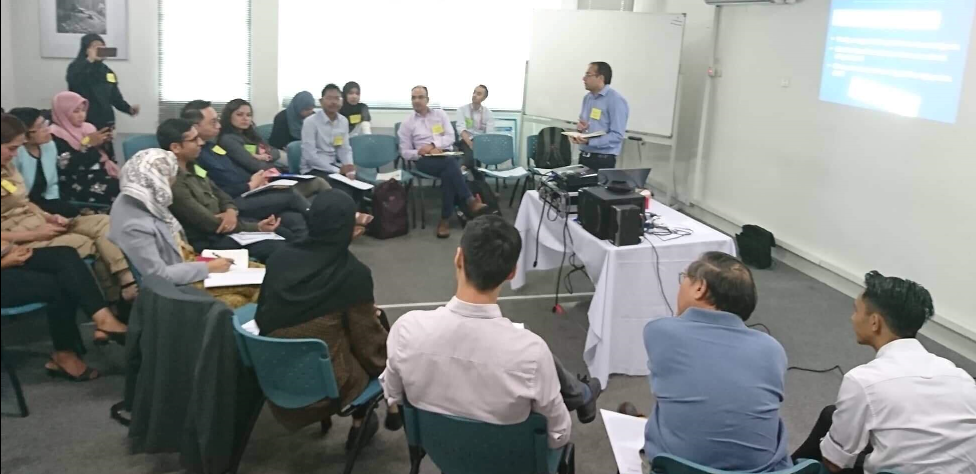
 On 20th April, another PPI was carried out among Nepali migrant workers at their living quarters. Around 20 Nepali migrant workers participated. During this meeting, issues of sudden nocturnal deaths and acceptability and feasibility of verbal autopsy tools, problem of kidney disease and its possible triggers were discussed. The research into the usefulness of verbal autopsy tool as a good example of BU’s FUSION, since research can lead to a change in practice regarding health of migrant workers through better education of the migrant community, their left-behind families and NGOs working in the field.
On 20th April, another PPI was carried out among Nepali migrant workers at their living quarters. Around 20 Nepali migrant workers participated. During this meeting, issues of sudden nocturnal deaths and acceptability and feasibility of verbal autopsy tools, problem of kidney disease and its possible triggers were discussed. The research into the usefulness of verbal autopsy tool as a good example of BU’s FUSION, since research can lead to a change in practice regarding health of migrant workers through better education of the migrant community, their left-behind families and NGOs working in the field.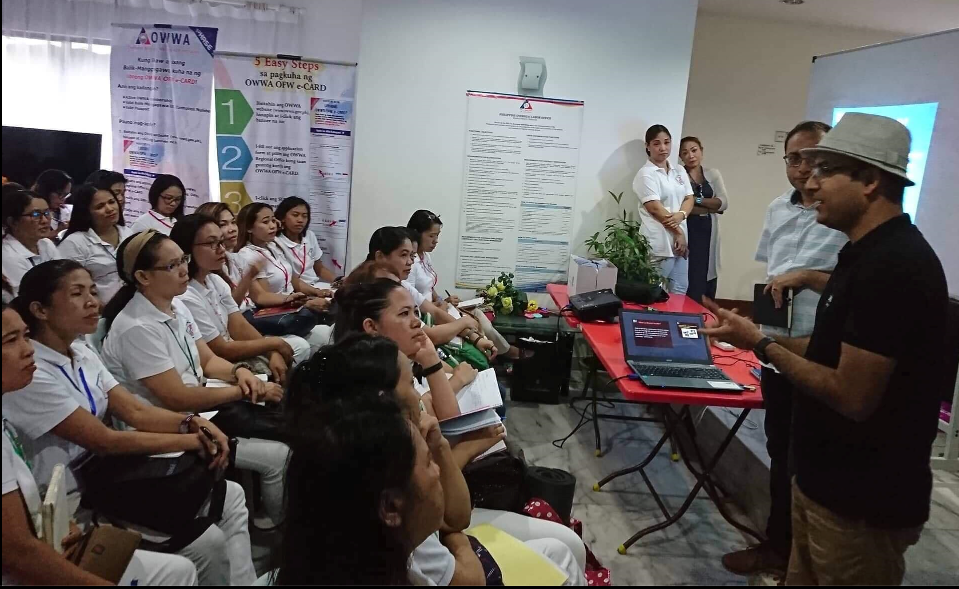 Finally, on 21st April, Dr. Regmi and Dr. Aryal were invited to the Philippine Embassy to share knowledge on mental health risk among migrant workers. They have presented findings of previous BU’s research on it as well as existing evidence on mental health risk on migrant workers and their left-behinds. More than 60 Filipino migrant workers attended the event.
Finally, on 21st April, Dr. Regmi and Dr. Aryal were invited to the Philippine Embassy to share knowledge on mental health risk among migrant workers. They have presented findings of previous BU’s research on it as well as existing evidence on mental health risk on migrant workers and their left-behinds. More than 60 Filipino migrant workers attended the event.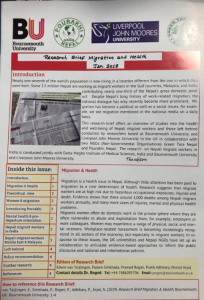 As Malaysia is a popular destination for migrant workers from Asia Pacific and South Asia (there are currently more than 700,000 Nepali workers in Malaysia), these consultations will play a significant role in designing and developing grant applications to promote health and wellbeing of migrant workers. This consultation meeting builds on recent work on the topic conducted at BU [2-14] as highlighted in the recent Research Brief Migration and Health (Jan. 2019).
As Malaysia is a popular destination for migrant workers from Asia Pacific and South Asia (there are currently more than 700,000 Nepali workers in Malaysia), these consultations will play a significant role in designing and developing grant applications to promote health and wellbeing of migrant workers. This consultation meeting builds on recent work on the topic conducted at BU [2-14] as highlighted in the recent Research Brief Migration and Health (Jan. 2019).


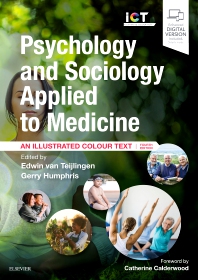
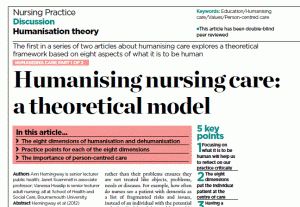
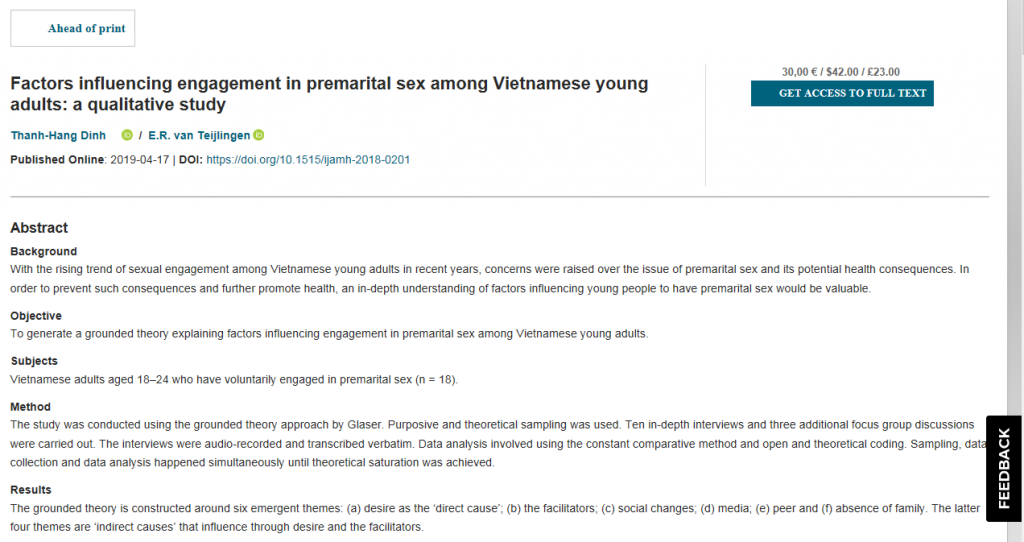



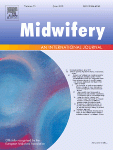

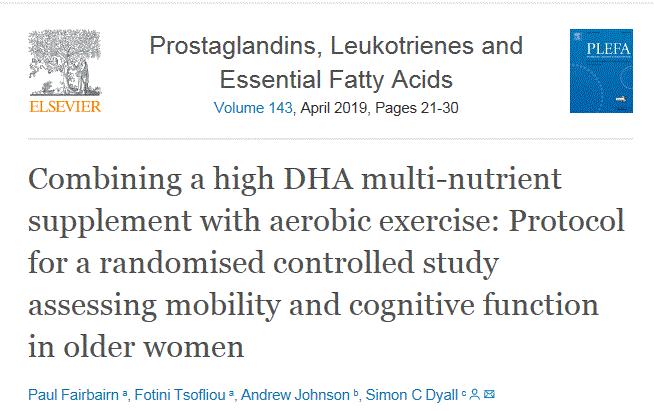
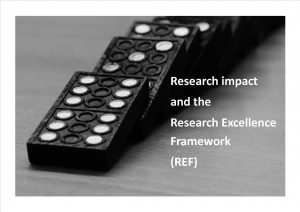





















 FHSS academics teaching in Nepal
FHSS academics teaching in Nepal New weight change BU paper
New weight change BU paper One week to go! | The 16th Annual Postgraduate Research Conference
One week to go! | The 16th Annual Postgraduate Research Conference Geography and Environmental Studies academics – would you like to get more involved in preparing our next REF submission?
Geography and Environmental Studies academics – would you like to get more involved in preparing our next REF submission? Congratulations to three former BU staff
Congratulations to three former BU staff MSCA Staff Exchanges 2024 Call – internal deadline
MSCA Staff Exchanges 2024 Call – internal deadline Applications are now open for 2025 ESRC Postdoctoral Fellowships!
Applications are now open for 2025 ESRC Postdoctoral Fellowships! Horizon Europe – ERC CoG and MSCA SE webinars
Horizon Europe – ERC CoG and MSCA SE webinars MaGMap: Mass Grave Mapping
MaGMap: Mass Grave Mapping ERC grants – series of webinars
ERC grants – series of webinars